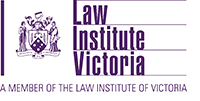Frequently Asked Questions
Frequently Asked Questions
While both are fully licensed and able to complete a conveyancing matter from start to finish, only a lawyer is allowed to give legal advice. Therefore, if something were to go wrong during the course of a matter and a dispute arose, only a lawyer can provide legal advice on how best to proceed.
Whilst not strictly required, recent changes to how property settlements take place in Victoria have made it much more difficult to self-represent in a conveyancing matter.
Whereas previously settlements would involve the physical exchange of paper transfer documents, which could then be taken to the Land Registry Office for registration, the Land Registry now requires the electronic lodgement of nearly all land title documents, meaning that settlements must now be completed on an Electronic Lodgement Network Operator (ELNO) such as PEXA.
Whilst it is still technically possible for you to apply for an exemption from electronic lodgement and to complete settlement manually without legal representation, the Land Registry strongly advises against this on their website.
Beyond the practical difficulties of completing settlement without legal representation, it is also not advisable to enter into a binding Contract of Sale without first seeking legal advice.
It is not a strict requirement that a will be drawn up by a qualified lawyer. Depending on the complexity of the individual’s estate plan and their general understanding of the execution requirements of a will, a DIY will kit may be appropriate in certain situations.
However, bear in mind that if a will is not executed properly or if certain clauses in the will lack clarity, your executor may find it difficult having the will accepted by the Court and carrying out your last wishes.
A will sets out who you want to step into your shoes when you pass away to assist with finalising your affairs. The will should also state who is to benefit from your estate. A power of attorney operates to appoint someone to make certain decisions on your behalf whilst you are still alive. There are different types of power of attorney documents which you can put in place, with each serving different purposes.
The types of decisions you can empower your attorney to make on your behalf include medical decisions, financial decisions and lifestyle decisions. An important point to note is that a power of attorney can only have effect whilst the principal is still alive and so as soon as the principal passes away, the power of attorney ceases to have any effect. At that point the will kicks in to determine who has the authority to act on behalf of the deceased.
Dying without a will is known as dying intestate, and in such situations the provisions of Part IA of the Administration and Probate Act (VIC) 1958 will dictate who can apply for a Grant of Representation and who is to receive the deceased’s estate.
It is a common misconception that the Crown or the Government will take a deceased’s estate if they pass away without a will, and this is only the case if the deceased did not leave behind any surviving next of kin. Next of kin would include domestic partners (whether married or unmarried), children, grandchildren, parents, siblings, grandparents, aunts, uncles or cousins.
A power of attorney can only be validly made when a person still has the mental capacity to do so. Once you lose capacity, if you do not have a valid power of attorney already in place, the only way that someone can be empowered to make decisions on your behalf would be to apply to the Victorian Civil and Administrative Tribunal to be appointed as a Guardian and/or Administrator.
- Assets held in joint names (such as properties held with someone else as joint tenants or joint bank accounts);
- Assets held by a private company of which you are a director;
- Assets held in a family trust;
- Insurance policies/bonds where you have nominated a direct beneficiary;
- Superannuation – unless the trustee elects to pay your fund into your estate.
The time it takes to finalise the administration of an estate will depend on the complexity of the estate and the nature and number of assets which need to be dealt with. There are a few waiting periods and deadlines which executors should be aware of when looking to finalise the administration of an estate. For example, family maintenance claims are claims brought by a deceased’s family or other entitled person(s) where the claimant feels they have not been sufficiently provided for in the will. Under Section 99 of the Administration and Probate Act (VIC) 1958, they must be brought within 6 months of the issue date of a Grant of Representation. Therefore, if there is the potential for a family maintenance claim to be brought against the estate, an executor should wait at least 6 months after the Grant of Representation has been obtained before proceeding with final distributions of the estate, or else risk being personally liable for the claim.
In terms of deadlines, there may also be tax implications for taking too long to finalise administration. For example, a deceased’s principal place of residence benefits from an exemption from Capital Gains Tax, and this exemption continues for a period of 2 years starting from the date of death.Therefore, if an executor disposes of the residence after the 2 year grace period, there may be a Capital Gains Tax liability incurred by the estate. There is a similar concessionary period for the purposes of assessing land tax on any land held in the name of the estate of up to 3 years from the date of death (but may be shorter depending on whether the executor has undertaken and completed certain estate administration tasks). It would therefore be prudent for an executor to seek tax advice for any potential unfavourable tax outcomes should the administration of the estate be delayed beyond the relevant deadlines.
A commercial premises which is leased to a tenant should have the tenancy documented by a lease agreement. The type of lease agreement to be used will be dependent upon the intended use of the premises. A premises which is used wholly or predominantly for the sale of goods or services to the end user will be classed as a retail premises. The landmark decision of IMCC Group (Australia) Pty Ltd v CB Cold Storage Pty Ltd [2017] VSCA 178 established what is commonly referred to as the ‘ultimate consumer test’, which is widely used to determine whether a premises is being used to sell goods or supply services to the ultimate consumer or end user.
It is important to note that the ultimate consumer is not restricted to members of the general public. A business purchasing goods or services from another business can also be deemed to be the ultimate consumer. If a premises is classified as a retail premises, it will attract the protection of the Retail Leases Act
(Vic) 2003. Some of the advantages which the Retail Leases Act provides to retail leases and which do not apply to commercial leases include:
1. Landlord restricted from recovering land tax from the tenant;
2. Landlord restricted from recovering capital costs from the tenant;
3. Tenant must be provided with a disclosure statement prior to entering into the lease, which sets out the amount of outgoings the tenant must re-imburse the landlord.
Tenants under a retail lease are entitled to a minimum total lease period of 5 years. This includes any exercisable options for further terms. Otherwise, the parties are free to negotiate the term of the lease. A tenant can waive their right to the minimum 5 year term, but must apply for a waiver certificate from the Victorian Small Business Commission to do so.
There may be a multitude of reasons why a tenant would want a lease term of less than 5 years, including:
1. Uncertainty as to the long-term suitability of the premises;
2. Uncertainty as to the viability of their business;
3. Potential for their business to outgrow the premises within 5 years.
The amount that you need to pay to buy into a retirement village will vary based on a number of different factors, such as the size and location of the village, the size of the unit being purchased, the services which the village provides, the financial model adopted by the village and the type of landholding interest you will be receiving. Generally speaking, most retirement villages will require residents to pay a large ingoing payment when first entering the village. This will be the purchase price, or if you are receiving a leasehold interest it will be referred to as an ingoing contribution. You will then need to pay an ongoing service or maintenance charge, usually on a monthly basis, to cover the cost of the services which the village provides to its residents. Finally, when you leave the village, the village will often take an exit fee which is deducted from the ingoing contribution that was paid upon entry, before refunding the ingoing contribution to you or your estate.
Other costs which you might incur include the cost of renovating or reinstating the unit to prepare it for re-sale, capital loss on the re-sale, utilities and outgoings such as council and water rates. Again, the costs associated with buying into a retirement village can vary significantly depending on the village, and so obtaining legal advice which is tailored to the specific retirement village and their financial model is essential.
- Be 55 years or older; or
- Retired from full time employment.
There are many points of difference between a retirement village and an aged care facility. At a legislative and jurisdictional level, retirement villages operate under state level legislation, with each State having their own separate act. In Victoria, it is governed by the Retirement Villages Act (VIC) 1986. Residential aged care operates under the Commonwealth level Aged Care Act (Cth) 1997 with aged care facilities nationwide falling under the same act.
Retirement villages require their residents to have a certain level of independence. Many villages will provide some level of assistance by way of the services on offer at the village, such as shuttle bus services, in-house restaurant or catering, cleaning and maintenance of common areas and gardens. However, they require the residents of the village to be able to live independently in their own self- contained unit and will have restrictions on live-in carers. The village may also require its residents to undergo a medical assessment from time to time to determine whether they remain fit to reside in the village. If the resident is deemed medically unfit
to reside at the village, they will be asked to leave or move into residential aged care.
Residential aged care provides a much higher level of care to accommodate those who require 24/7 care and supervision. It might include personal care such as assistance with bathing, eating and taking medication, as well as clinical services such as hospital bedding, nurse on-call services and physiotherapy. Aged care facilities are heavily subsidised by the Australian Government, and in order for a resident to access the subsidy, they must undergo an assessment by an Aged Care Assessment Team (ACAT). The amount that the government will contribute is determined by a means-based assessment.


